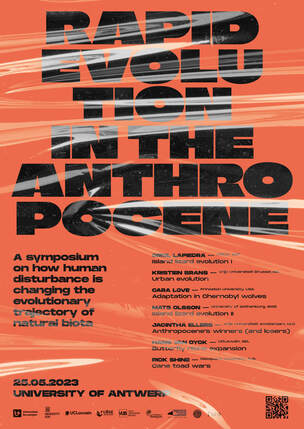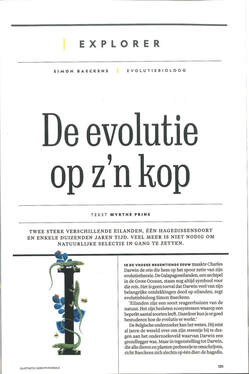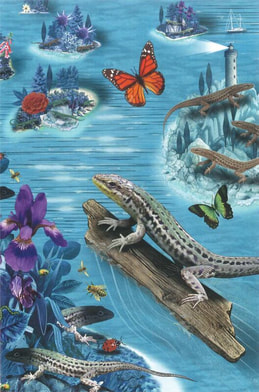|
|
CSiV XVI
But others have shown unexpected resilience. They have adjusted their behaviour, adapted their physiology, amended their morphology, altered their life history to fit in this modern, man-made world. Some of them do well, some even thrive in the new settings.
In this symposium, we brought together biologists that have documented how natural species of various kinds have responded to our ubiquitous and intrusive presence. Which species will make it through the sixth extinction wave, why, and how will they do it? The program line-up consisted of seven esteemed and internationally renowned evolutionary ecologists: Oriol Lapiedra (CREAF, Spain), Kristien Brans (VUB, Belgium), Cara Love (Princeton University, USA), Mats Olsson (University of Gothenburg, Sweden), Jacintha Ellers (VUAmsterdam, The Netherlands), Hans Van Dyck (UCLouvain, Belgium), and Rick Shine (Macquarie University, Australia). Over 100 people registered for the event — the majority were MSc and PhD students. The organisation of the symposium was only made possible by funding from the FWO, Society for the Study for Evolution, The Company of Biologists, and the Francqui Foundation. — Poster artwork by Arno Heeren
|




